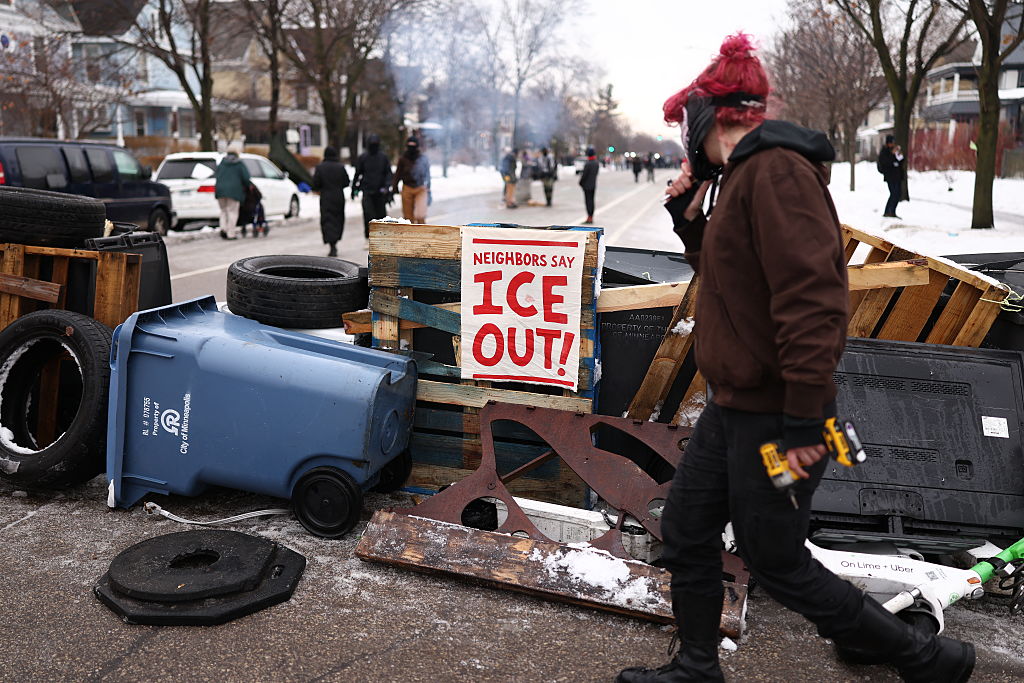Earlier this month, as the nation was reeling from the shootings in Tucson, Christians from a variety of traditions gathered in Birmingham for the annual meeting of Christian Churches Together. One of the fruits of their work came in the form of a new “Letter from Birmingham.” It is written in response to Martin Luther King, Jr.’s famous “Letter from Birmingham Jail,” which King had originally been prompted to write by a letter he received from eight white Birmingham clergymen. You can read all three letters here.
The letter from today’s clergy drew me back into a closer reading of King’s 1963 letter. Then, for the first time, I read the letter from the Birmingham clergy. Here were religious authority figures from various traditions, united in presenting a well-intentioned call for reasonable and calm deliberation. But their polite eloquence only served to reinforce the long history of systemic violence against an entire population.
These men sincerely believed in what they were saying, and voiced it with a fair degree of civility. I find it sobering that this letter could easily meet the criteria for the basic “civility” whose absence we are lamenting today. Civility alone is insufficient. It will only take us so far, and its presence does nothing to guarantee that violence and injustice are being addressed.
I, too, am disheartened by the vitriol in current social and political discourse. But let’s not pretend that civility will fix it. There are deep differences in our civic and ecclesial convictions and moral imaginations, and they will persist whether or not we use polite words to address them. Paul Krugman speaks well about this in his recent editorial “A Tale of Two Moralities.”
Even if civility were enough, we’d still be in trouble. We are entrenched in a 24-hour news cycle that is fueled by sensationalizing incivility. We are mired in technology that entices us to spread it faster than you can click “share.” Only three of about 600 of our elected leaders could even agree to a 32-word civility pledge.
King’s letter exposed the ineffectiveness of mere civility alone. It appeals not to propriety but to a higher ethic, the gospel of Jesus Christ. All of us who seek to follow the way of Jesus would do well to wrestle a bit further with the call to go beyond playing nice towards the rule of love extended even to our enemies.
How that gets worked out in any context is never simple. As King put it, “My citing the creation of tension as part of the work of the nonviolent resister may sound rather shocking. But I must confess that I am not afraid of the word ‘tension.’ I have earnestly opposed violent tension, but there is a type of constructive, nonviolent tension which is necessary for growth.”
It wasn’t simple for Jesus either, but he models the way in Luke 4: 1-30. Ready to debut his ministry, Jesus speaks in the Nazareth synagogue. Faced with what could have been the perfect opportunity to rally his hometown “base,” he resists the temptation to share only what they want to hear. The crowd’s initial excitement about Jesus’ tidings of liberation quickly turns to fury when he reveals that the good news is also for outsiders, foreigners, “sinners.” Outraged, they quickly escalate to violence, mobbing together to throw him off a cliff. In a powerfully succinct picture of bearing tension without retaliating, he simply walks through their midst and goes on his way.
Jesus embodies the love that transcends courtesy, love capable of communicating a difficult message, love that wins people over in a way that vitriol never will. King’s legacy echoes this love. It is not the propriety of the Birmingham clergymen we remember, but the prisoner’s passion and wisdom, penned on scraps of newsprint and toilet paper in a jail cell, pleading with his fellow citizens to reframe their agenda: “So the question is not whether we will be extremists, but what kind of extremists we will be. Will we be extremists for hate or for love? Will we be extremists for the preservation of injustice or for the extension of justice?”
Jessica Bratt is ordained in the Reformed Church in America and currently serves as a chaplain at Children's Hospital in Boston, Massachusetts. She was formerly on denominational staff as Executive Coordinator in the Office of the General Secretary.







